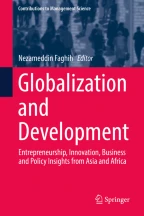
The altercations regarding globalization have been seething ever since it formally started in the mid-twentieth century with the commencement of institutions like the World Bank and the International Monetary Fund (IMF). India opened up to globalization considerably later in 1991 when it was felt imperative to liberalize the economic policies as well as standards and enable privatization to energize the development of its long stale economy. Verifiably, on the other hand, India has since a long time ago preached principles of Vasudhaiva Kutumbakam (unification of the world as one family) and Sarve Bhavantu Sukhinah (may all be prosperous and glad), hence, in this manner, sculpting out India’s own model of globalization. Professor Theodore Levitt of Harvard Business School was first to utilize the expression globalization and referred to as an asserted result of business sectors on the planet. As per Levitt’s considerations, globalization is the rise of worldwide markets for consumer products that are standardized, empowering a firm to profit by colossal economies of scale in production, management, marketing and distribution, and the rest will be added up by the innovation of technology for more standardization. This chapter analyses the advancement and change of the idea of globalization to glocalization and especially in Indian context. This chapter will likewise follow the history and the improvement of the idea of globalization and the term “glocalization”, which appeared first in the late 1980s in the article of Japanese economists in Harvard Business Review as a preeminent business strategy in Japan, as the word in Japanese is Dochakuka meaning global localization. This chapter winnows the factors, ideas, speculations and standards of globalization and how it led to glocalization from economic and business point of view specifically in Indian context. This chapter centres around the epistemological examination of the globalization and glocalization topics, including how glocalization has impelled the corporate giants like Pepsi Co., McDonald’s, KFC, Viacom 18, etc. to change their strategies to succeed in Indian market.
This is a preview of subscription content, log in via an institution to check access.